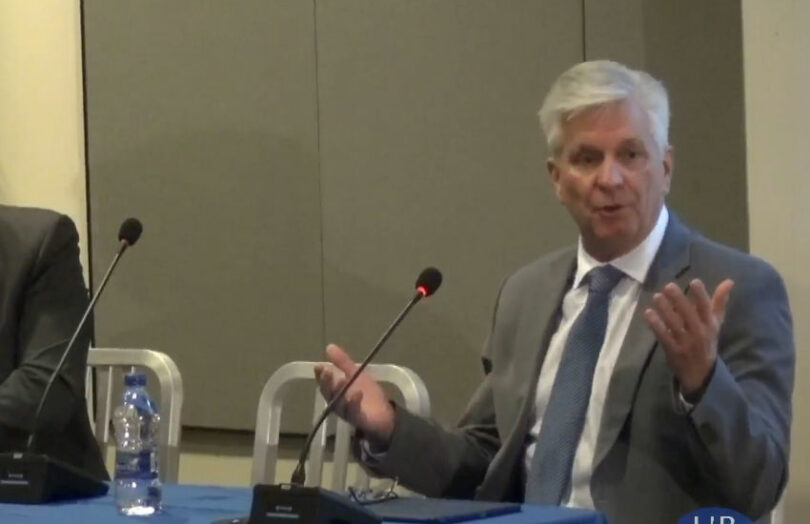In a speech last week, Federal Reserve Governor Christopher Waller argued that “not all frictions that slow down payments are bad”. While he was mainly questioning the interconnection of faster payment systems, he touched on correspondent banking.
As context, the Bank for International Settlements (BIS), the central bank to the central banks, is working on Project Nexus for interlinking faster payments via its innovation hub. Additionally, Project Agorá plans to use tokenization and wholesale CBDC to speed up cross border payments via correspondent banks. The Federal Reserve Bank of New York is a participant in that project, but “strictly for research and experimentation.”
While Governor Waller acknowledged that it’s desirable for remittances to arrive faster, the heart of his objections were in one paragraph:
“Not all frictions that slow payments down are bad. Certain frictions are purposely built into the global payment system for compliance and risk-management reasons. Slowing down the speed at which payments are cleared and settled helps banks prevent money laundering and counter the financing of terrorism, detect fraud, and recover fraudulent or misdirected cross-border payments. Granted, the practice today of sending payments through an often complex chain of correspondent banks contributes to slower payments that could benefit from efficiency enhancements. However, there is no silver bullet that increases speed and efficiency without tradeoffs. Unless new solutions are found, interlinking fast payment systems might increase the risk-management burden for banks that participate in them.”
Buyers don’t want faster payments?
He went on to argue that it is only sellers that want to receive money faster. Buyers don’t want to pay earlier. That’s certainly true. However, speeding up cross border payments is not the same as using bank transfers versus cheques. To Governor Waller’s point, paying by cheque means the payer keeps hold of the money for longer.
In my experience, cross border payment transfers leave my account instantly. Contrary to Governor Waller’s argument, buyers should love faster cross border payments, because if a payment arrives instantly instead of taking two days, then the buyer can send the money two days later.
If I know it takes two days, then I have to send the payment two days before the expected arrival date. It is invariably the banks involved that keep hold of the money in the interim. That might be a mismatch in banking hours or issues with Nostro account liquidity or compliance. And some banks may use compliance as an excuse for delays.
The Governor then questioned whether improving payment systems is always the role of central banks or should be left up to the private sector. He gave examples of where the Fed steps in, such as the case of FedNow, where the private instant payment systems only served a subset of banks.
Mr Waller emphasized that the current focus of FedNow is rolling it out domestically. So it has no plans for interlinking the system.
What does this mean?
One of the aims of Project Agorá, the cross border initiative that uses correspondent banks, is to improve compliance. That should mean that when a payment instruction is received, the banks conduct compliance first and share information. Perhaps the amount meant for payment is reserved rather than removed. If all is clear, then the money leaves your account and arrives at the destination. So part of this is a change in the process order. Mr Waller acknowledged that the correspondent banking process is ripe for optimization.
His comments on the role of the central bank could be good news for Fnality. That’s the private sector system for tokenized institutional payments using central bank deposits. It is working on adding tokenized US dollars to its existing GBP offering.
On the other hand, so far the U.S. regulators have not been supportive of some of the private interbank payment initiatives that use blockchain, particularly those targeting corporates. Hopefully, that is changing with the Regulated Settlement Network.






